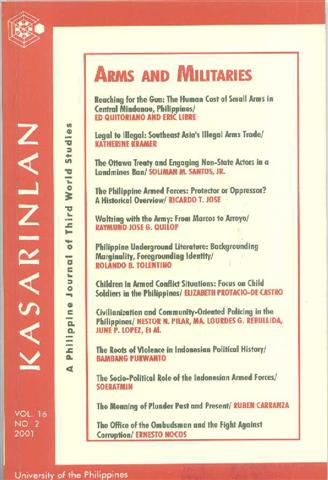Civilianization and Community Oriented Policing in the Philippines
Abstract
The role of the Philippine National Police (PNP) is changing. During the Marcos administration the police became indistinguishable from the military. The 1987 Constitution addressed this anomalous situation by providing that the police force to be civilian in character. But the police in general continued to be regarded in bad faith. They are seen as poor role models who are unable to fulfill their duties becauseof a lack of lack integrity, competence and discipline.
Policymakers envision 'an entirely new style of policing: a civilianized PNP. In a "demilitarized" PNP there is transparency as well as greater consultation and participation by communities. Community policing is a working partnership between the police and the community to p,~vent crime, arrest offenders, find solutions to recurring problems and to enhance the quality of life in the community. The process of civilianization requires a radical shift in mind and transformation in police institutions. Community policing appears to- be the way to operationalize the civilianization of the PNP, and to bring closer the realization of the "ideal" police - the protector of the people.
How to Cite
PILAR, Nestor N. et al.
Civilianization and Community Oriented Policing in the Philippines.
Kasarinlan: Philippine Journal of Third World Studies, [S.l.], v. 16, n. 2, sep. 2007.
ISSN 2012-080X.
Available at: <https://journals.upd.edu.ph/index.php/kasarinlan/article/view/1650>. Date accessed: 09 sep. 2025.
Section
Research Reports
By submitting a manuscript, the authors agree that the exclusive rights to reproduce and distribute the article have been given to the Third World Studies Center.



